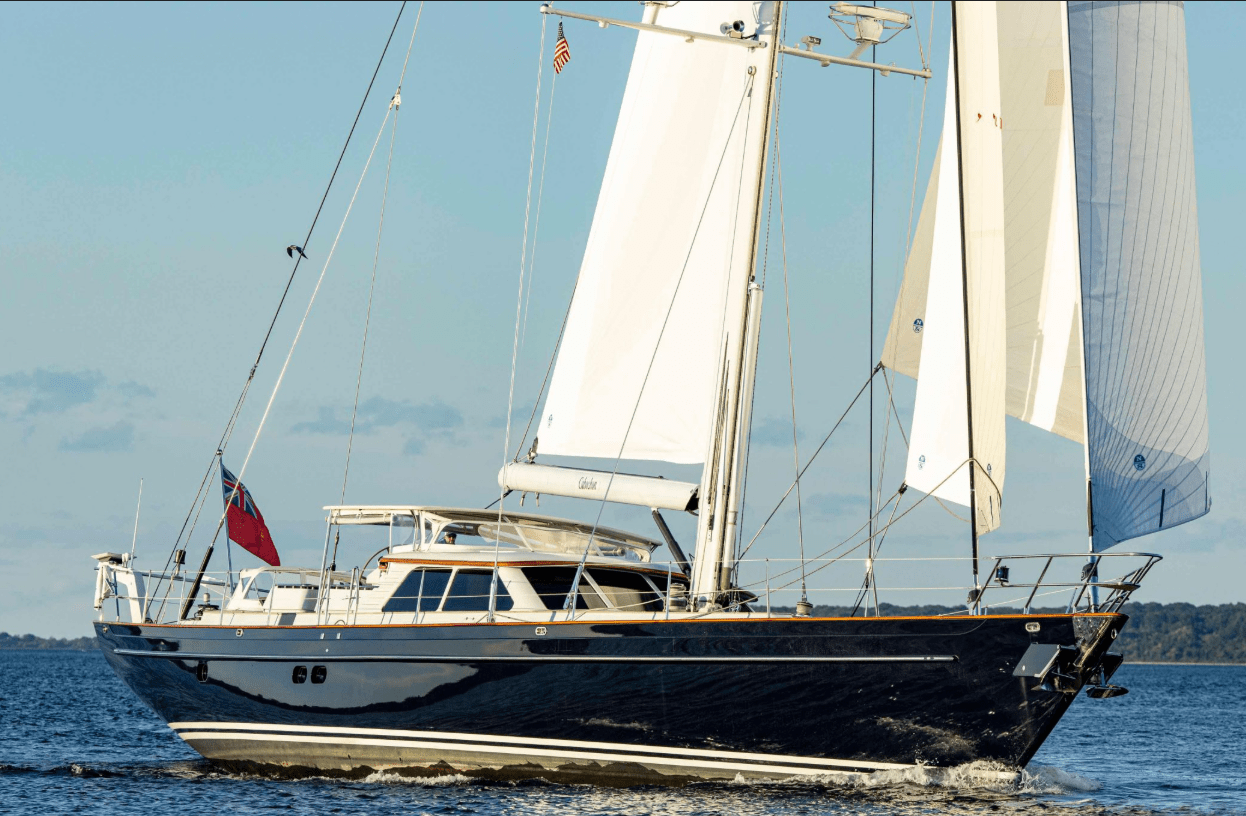
Sailing the Caribbean: Tips for Choosing the Perfect Boat Propeller
Sailing the Caribbean: Tips for Choosing the Perfect Boat Propeller
Sail Boats and Propellers: Choosing the Right Gear for Sailing in The Caribbean
With around 140 million people actively participating in boating around the world, the chances you are boating this summer are pretty high. When sailing the beautiful waters of the Caribbean, having the right boat propeller is a must when it comes to performance and efficiency.
The propeller plays a significant role in determining your boat's speed, maneuverability, fuel efficiency, and overall sailing experience. Choosing the perfect propeller requires careful consideration of factors such as boat size, engine power, cruising speed, and the specific conditions you'll encounter in the Caribbean.
In our blog post, we will provide you with essential tips to help you select the best boat propellers for your Caribbean adventures.
Understanding Boat Propellers
Boat propellers come in varying sizes, shapes, and materials, each having a unique impact on how your sailboat handles on the water. Before diving into the selection process, familiarize yourself with propeller basics. Learn about terms such as pitch, diameter, and blade count.
It is critical to understand the composition of boat propellers and which ones are ideal for your sailing goals.
Aluminum Vs. Stainless Steel Propellers
When choosing between aluminum and stainless steel propellers, it's important to consider each material's unique advantages and disadvantages.
Aluminum, being less expensive, gives no-hassle handling and maintenance. It is also perfect for sailing on shallow waters. It is corrosion-resistant for sea pollution but is prone to corrosion from saltwater. Consider it as an initial investment that would require replacing every few years.
Alternatively, stainless steel is durable, readily available, and lasts longer with high resistance to rust and corrosion. Additionally, stainless steel propellers offer added stability while sailing in rough waters. Furthermore, sailors prefer it for its strength and reliability, even after extreme propeller impacts.
Consider Boat Size and Weight
The size and weight of your boat are crucial factors in propeller selection. Larger and heavier boats generally require larger propellers to provide sufficient thrust. Consult your boat's manufacturer guidelines or speak with a marine expert to determine the appropriate propeller size for your specific vessel.
Determine Engine Power and RPM Range
Your boat's engine power and RPM (revolutions per minute) range play a significant role in propeller selection. Consult your engine's documentation or speak with a marine mechanic to understand the recommended RPM range for optimal performance.
Choosing a propeller that allows your engine to operate within the recommended range ensures efficient fuel consumption and prevents engine strain.
Evaluate Water Conditions in the Caribbean
The Caribbean is known for its diverse water conditions, including open ocean sailing, strong currents, and shallow reefs. Consider these factors when choosing a propeller.
If you plan to navigate shallow areas or encounter strong currents, a propeller with a lower diameter and smaller blade count may be advantageous for maneuverability and avoiding damage.
Seek Expert Advice
Don't hesitate to seek advice from marine professionals or experienced sailors in the Caribbean. Local knowledge can be invaluable in understanding the unique challenges and conditions specific to the region.
They can provide insights on the best propeller options for Caribbean sailing, taking into account factors such as prevailing winds, currents, and popular cruising routes.
Factors to Consider When Choosing Boat Propellers
Choosing the optimal boat propellers is critical to ensure a safe and enjoyable time at sea. When choosing the right gear for your sailboat, you must consider the following factors:
Pitch and Diameter
Pitch and diameter are significant aspects when selecting the perfect boat propellers. Diameter refers to the distance across a circle that the propeller’s blades sweep during the rotation.
Pitch defines the distance traveled on a single propeller rotation. When larger pitches provide long-distance travel, larger diameters increase your boat's speed. Always ensure the ideal balance between the two, depending on specific sailing needs.
Number of Blades
The number of blades directly affects a propeller's speed and performance. Three-bladed propellers tend to be more fuel-efficient but run better with lighter boats and flat water surfaces.
Four-bladed propellers increase acceleration and offer more grip with the water, resulting in enhanced performance on boats with a heavy load and rough conditions. Whether it’s speed or enhanced performance capability, deliberating your priorities will aid in choosing the perfect blade count.
Cavitation
Cavitation is disturbance resultant from gas or bubbles effect, rising and collapsing under intense pressure from propellers while in motion. Ventilated or cavitating propellers cause propulsion loss, excessive vibration, and noise in yachts.
Perfect diameter to pitch ratio effectively reduces propeller-air mixture reducing ventilation. A propeller does its job efficiently with precise execution of its specifications.
Test and Fine-Tune
Once you have selected a propeller, test it in various conditions to evaluate its performance. Monitor the boat's speed, engine RPM, and overall handling to ensure optimal results. If necessary, consult a marine professional for any adjustments or fine-tuning that may be required to maximize performance.
Ready to Buy Boat Propellers Like a Pro?
In many ways, the quality of your sailing in the Caribbean is dependent on the right choice of boat propellers you deploy. It's essential to understand the materials' properties, diameters, pitches, blade count, and cavitation limitations that your boat can handle.
By choosing diligently, you will save from untimely replacements and maintenance-related costs. With the distinction between aluminum and stainless steel for immediate deployment and the intricate elements mentioned above taken into consideration, selecting boat propellers aligning with your sailing intent comes easy.
Visit the rest of our site to learn more about purchasing the best boat propellers for sailboat owners.

